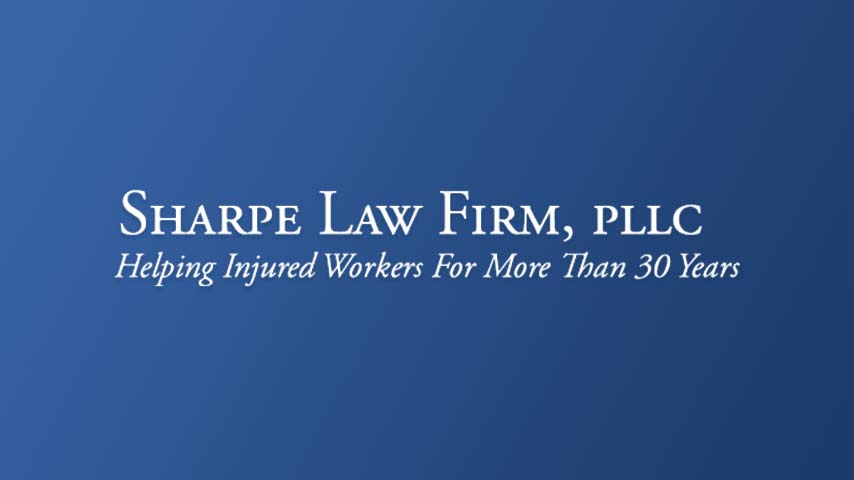Your Right to Medical Treatment With an Open L&I Claim
An open L&I claim gives you a right to medical care for necessary and proper treatment that is related to your job injury. If you are injured, get medical care. When you file a Labor and Industries report of injury with a doctor, that first visit is always paid for. If your claim is accepted, then all treatment for accepted conditions should be paid for.
This is medical care for your L&I claim which only covers job related medical or mental health conditions, while your claim is open. This is not health insurance. Medical treatment paid for by L&I usually ends when the claim closes.
Choice of Physician – The LAW and the REALITY.
Pay Attention to This!
Your first visit to a doctor after an injury is important because this is the doctor who should file your L&I claim. Be sure to tell him/her how you were hurt on the job. This doctor will tell L&I in her or his report if your injury is job related, and what medical conditions L&I should accept. You may get to choose this physician. It is a very important choice so get it right.
Your second visit for L&I medical treatment is also very important. This usually is the doctor who will be your attending physician. If your injury is serious, this doctor will be one of the most important persons in your life.
You may choose your own attending physician from L&I’s list of approved medical providers and have the medical bills related to your job injury or disease sent directly to L&I for payment.
If you are seeing the wrong doctor, you can pick another doctor from the list of approved providers. Do this if your doctor isn’t getting the job done. There are L&I rules about changing doctors at WAC 296-20-065. Having a good and supportive doctor is very important.
Your doctor can refer you to specialists. Some specialists must be pre authorized by L&I or the Self Insurer.
Your doctor or the specialist can prescribe diagnostic tests. Some tests must be pre authorized by L&I or the Self Insurer.
Are you out of Washington State? There are special and complex rules for out of state treatment and non typical medical providers. Out of state provider.
The Problem with Your Choice of Physicians
When you vote, do you have real choice? No you don’t! Your “choice” is limited, sometimes to only two candidates. Often they are a left or right wingnuts, who don’t speak for you. They speak for the establishment. The same is true of the L&I medical provider network. Your choice of doctors is very limited, and the choices are getting worse every day as more good doctors refuse to deal with L&I paperwork and harassment.
It’s not easy, finding a good doctor to be your attending physician. But it’s important. Do your best to make it happen.
What is L&I’s Medical Provider Network?
The network is a list of Washington State doctors and other Washington health-service providers that L&I has approved to provide medical care for injured workers, RCW 51.04.050 These network providers meet standards set up by L&I.
How Do I Find an L&I Doctor? L&I Provider List/Lookup.
- Find an L&I Approved Doctor
- Do your best to check out any L&I approved doctor. Just because L&I has approved them doesn’t mean that they are a good doctor for you. It’s important that the doctor you choose believes in you and wants to help.
Can My Regular Doctor Become an L&I Provider?
- Yes
- If you have a good doctor who isn’t an L&I provider, then convince your doctor to become a network provider. Your doctor needs to submit a form to request to become an L&I network provider.
- Join the L&I provider network – This is the form for your doctor to complete
Be Careful About Work Clinics, Company Nurses and Company Doctors.
- Most doctors and nurses try to help their patients. However drop in clinics, IME doctors, and company doctors or nurses that cater to employers have divided loyalties. If you see the wrong doctor, he or she may ruin your claim.
- Under RCW 51.36.010 the worker is entitled to their free choice of treating provider. This is important!
- Understand this, the doctor who files your claim if he or she continues to treat you will be your attending physician. The attending physician has a lot of say about how much help you are going to get while you are injured. Pick your own doctor carefully. Pick the wrong doctor and you will be sorry.
- You do not have to see a company doctor or work clinic. Your employer may offer to take you to an occupational medicine clinic after your injury. You do not have to agree to see the doctor your employer recommends. You can advise your employer that you appreciate their concern but you will see your own L&I doctor, and that you will have your own doctor treat you and/or file the L&I workers compensation claim for you.
- You should not allow any nurse case manager or other company representative to attend your medical exams. You have a medical privilege for privacy.
- If your company has an after accident drug testing policy and you want to keep your job, you are required to follow their policy at a facility they choose.
How Do You Complain About a Health Care Professional who is Unethical?
To complain about a bad health care provider. Contact the people who license them, The Washington State Department of Health.
You can also ask L&I to perform an audit. The Director of L&I has the authority to audit health care providers. Here is the law RCW 51.36.100. Call L&I to make this happen.
How Are L&I Medical Bills Processed?
- The doctor’s office takes care of the bills. They bill L&I (Labor and Industries) or the SIE (Self Insured Employer)
- L&I or SIE pay the doctor directly
- The injured worker will never see a bill, unless there is a problem. If the injured worker has an open L&I claim and the treatment is related to the job injury, then the injured worker should not be billed. Doctors’ bills are discounted by L&I, but the worker should not be billed the difference. WAC 296-20-015(5)(h)
If a Medical Treatment Billing is Wrongly Denied, Figure Out Why & Take Appropriate Action
- What is the reason given for not paying the medical bill? The reason should be on the remittance advice.
- Is it a good reason? If not request reconsideration of their decision.
- Is the billing in proper form?
- Is coverage being denied for a good reason?
- They are allowed to deny coverage for a procedure if they have scientific or factual support for their refusal to pay.
- Is a bogus IME all they have? Don’t let them get away with using a bogus IME to deny your claim. If a treating doctor has knowledge that an IME is inaccurate, your treating doctor needs to write a report and make it right. You may need to prompt your doctor to make this happen.
- Is the billing for controversial treatment?
- Does this treatment require authorization? WAC 296-20-03001
- Is there a current and valid PPO contract governing bill payment? If there is a valid PPO contract on the date of service and it does not exclude workers’ compensation, then if valid it controls billing.
- Take appropriate action if a bill is wrongly denied. How To Disagree With An L&I Decision
- If your doctor needs info from L&I, the Provider Hotline number is 800-848-0811.
L&I and the Self-Insurer are Regulated by the Law. They Should Follow the Law.
The Following Questions and Answers will Help with Understanding the Law and Getting Your Treatment Bills Paid.
- Is the Self Insurer or L&I refusing to pay bills or refusing to pay a benefit in a timely fashion? – They are not allowed to do this so don’t let them get away with it. They can be assessed a 25% penalty which is payable to the injured worker. See: Penalties to the Self Insured Employer
- Is L&I or the Self Insurer paying your doctor late? – If so, interest is due. The Self Insurer RCW 51.36.085 and L&I RCW 51.36.080 must pay medical bills within 60 days of receipt of proper billing on an allowed claim. If they do not pay on time then interest is due and shall be paid at the rate of 1% per month.
- Is the Self Insurer trying to negotiate the fee schedule? They are not allowed to do this. They must pay per the L&I fee schedule.
- Is L&I or the Self Insurer denying treatment for a condition they have previously paid for? The Court of Appeals in Clark County v. Maphet says they cannot do that.
- Take appropriate action if a bill is wrongly denied. Talk to your claims manager or the bill payer. If that does not work then request reconsideration with a protest in writing, or file a written appeal to the BOIIA (Board of Industrial Insurance Appeals). You must protest or appeal in time, or you lose your right to do so because of the time limitation placed on protest and appeal rights. See: How To Disagree With An L&I Decision
What is Medical Treatment?
Medical Treatment Defined – Washington Pattern Jury Instructions 155.31
A worker who [sustains an industrial injury] [has an occupational disease] is entitled to receive proper and necessary health care services for the diagnosis and treatment of any condition proximately caused by the [injury] [occupational disease]. Proper and necessary services may be either curative or rehabilitative.
- Curative treatment is treatment intended to produce permanent changes which eliminate or lessen the clinical effects of the condition.
- Rehabilitative treatment is treatment intended to allow an injured or ill worker to regain functional activity on a long-term basis.
A worker is entitled to proper and necessary health care services until the condition reaches [and maintains] a state of maximum medical improvement. Maximum medical improvement occurs when no fundamental or marked change in the condition can be expected, with or without treatment. The term “maximum medical improvement” is equivalent to “fixed and stable.” WPI 155.31 Treatment Definition
Before treatment will be authorized by L&I it must be related to the diagnosis and treatment of an accepted condition and meet the proper and necessary definition requirements as defined by L&I in WAC 296-20-01002
Medical treatment ends with maximum medical improvement (MMI).
There are very few exceptions.
MMI is an important concept because L&I will not pay for additional medical treatment and they will often close the claim after MMI is reached. L&I takes the position that payment for medical care is no longer proper and necessary once MMI is reached.
Keep in mind that MMI is not a fact, it is an opinion. L&I likes to artificially push an injured worker quickly to MMI. They will do this with IME doctors. Be sure you and your doctor advocate for the necessary and proper medical care that you need to heal as well as possible. How To Disagree With An L&I Decision
Lifelong L&I medical care for an L&I claim is rare. Lifelong L&I medical care is easy to say but hard to get. It can be done, especially in pension cases, but it’s not easy. You must have a helpful doctor and a good lawyer to have a shot at this.
- While your claim is open: You or your attorney can ask for a treatment order in anticipation of claim closure.
- After claim closure: After claim closure you can still request ongoing job related medical treatment. You will need to reopen your claim as part of the process The care requested must be proper, necessary, and causally related to your L&I claim. Once the claim is open or reopened you can request a treatment order.
What if my doctor is not a member of the network?
If your regular doctor or health care provider is not a member of the L&I network, then convince your doctor to join the network, or get your doctor to refer you to an attending physician who is a member of the network or get on the phone and find a doctor who is in the network.
- Find an approved L&I doctor on L&I’s provider list.
- Convince your doctor to become a network provider. Your doctor needs to submit a form to request to become an L&I network provider.
I can’t find a good doctor who will treat L&I patients.
How to find an L&I doctor?
- The L&I doctor finder – If you have a specific doctor in mind or if you are unsure if a doctor is in the network you can check their status at L&I’s Doctor Finder
- Don’t give up. Ask friends. Call doctor’s offices. Ask your attorney. A good doctor is very important.
Which Washington State doctors need to be network providers? L&I Network Provider Rules
In Washington State, you must find a network health service provider whenever you need care from any of these specialties.
- Physicians
- Chiropractors
- Dentists
- Optometrists
- Advanced registered nurse practitioners
- Naturopathic physicians
- Podiatry physicians and surgeons
- Physician assistants
- See: How to Join the L&I Provider Network
Other types of providers, (not listed above) do not need to join the network at this time. Providers that do NOT need to join the network include physical therapists, massage therapists, occupational therapists; pharmacies; hospitals; out of state providers and others. However they do need a provider account number to get paid by L&I.
What is an Attending Physician?
- The attending physician is your main doctor for your job injury.
- He or she needs to be an L&I Heath Services Provider.
- In L&I law, the attending physician has a lot of say about how much help you are going to get while you are injured. Their opinion is favored in the law.
- You have a choice of attending physicians. Get a good one.
What is an L&I Accepted Condition?
When you file your claim, the doctor completes a report. That report should indicate which medical and mental conditions were caused by the injury.
- An accepted condition is a medical or mental condition that is causally related to your L&I claim. Usually this is easy to prove, however in some cases it can be very difficult. If there is a question about an accepted condition then you must show L&I why the contended condition is causally related. You will need a helpful doctor for sure and maybe a good lawyer to make it happen.
- Newly contended conditions can later arise because it was never reported to L&I or because it is a complication of the original injury. For example, if you injure your right leg on the job, your left leg may become symptomatic because it is now being overused. Your left leg is a newly contended condition and can now be added as an accepted condition if you make it happen.
Why is finding a good L&I doctor so difficult?
- Finding a good L&I doctor is difficult because there are not enough doctors taking L&I claims. Many doctors don’t do L&I. They don’t like paperwork, IME’s, self insurers, lawyers, or L&I. As a result, many of them “are not accepting L&I patients”, or “don’t know what is going on.”
- If you have a serious injury or a complicated claim, you must get a good doctor. A good doctor will help with treatment and claim paperwork. Figure it out and make it happen.
- A doctor must be a member of the L&I provider network or have a provider account number before he/she can be your L&I doctor. If your doctor is not an L&I provider, you can ask them to join. Become a Provider to Get Paid For Services.
Can I change My L&I Doctor?
Yes you can change your L&I doctor. Follow these three steps.
- Find a better doctor
- Be sure the new doctor is an approved provider or get this new doctor to join the medical provider network, or if appropriate get a provider number with L&I.
- Complete a Transfer of Care Form
Can I Get Travel Expense for L&I Medical Visits?
Travel expense reimbursement is a benefit which some injured workers are eligible to receive. The benefit is small, and the rules only allow these benefits in some circumstances. See: Travel Expense Reimbursement
L&I has scheduled an IME – What Do I Do?
Pay attention, this is important. L&I uses IME’s to end medical treatment and to close claims. Learn what you can do to help yourself. See: Independent Medical Exam (IME)
L&I says my doctor is not in the network. What do I do?
See: L&I’s Medical Provider Network – How to Find An L&I Doctor
- Unrelated condition means the job injury did not cause or aggravate the condition.
- L&I will not pay for unrelated conditions. L&I pays for medical care if it is related to your job injury or occupational disease.
- L&I will not pay for conditions which are unrelated to your job injury. L&I treatment is not health care insurance. It does not matter that you lost your health care insurance because of your job injury. (however see Time Loss for some help with loss of health insurance.)
- To get care for unrelated or denied conditions use your medical insurance (if any) or consider applying for Social Security Disability so you can get Medicare to pay.
- If the “unrelated” or “denied” medical condition, really should be related and accepted, then timely protest or appeal the order which wrongly classifies this medical condition(s). Get your doctor to help. Talk with a lawyer if you need even more help. Don’t wait.
Medical treatment is determined to be for a condition not accepted by L&I.
A condition not accepted is an L&I administrative decision made by a claims manger who may not know the facts. Get your doctor to help with this issue. Often L&I is unaware of how your medical treatment is related to the job injury. The attending physician has a lot of say about your medical condition and how it relates to your job of injury. If your job injury has caused or aggravated a medical problem that needs treatment, make sure your doctor says so, in writing, to L&I.
For example if you hurt your right arm, you may end up overusing your left arm. At some point your overused left arm may become symptomatic and a natural complication which needs medical treatment. L&I can and should pay for the medical care for this overuse problem. It’s your doctor’s job to convince the claims manager that your new arm problem, the overused left arm, should also become an accepted condition. If your doctor cares about you, he should do this for you and for himself.
The same is also true for mental health conditions. If you’re seriously injured and out of work you may get depressed. Depression is a natural complication of a serious and complicated job injury. It is a medical condition. Depression gets better with good mental health care. Depression can become an L&I accepted condition. Your attending physician is the person who can turn a medical condition into an accepted condition. He/she does it by writing to or speaking with the claims manager, and in the example of depression by referring you to a psychiatric specialist, who then may convince the claims manager to accept the mental health condition.
Incorrect denial orders should be protested or appealed. You have a right to medical care for conditions which are related to your job injury. See How To Disagree With An L&I Decision If L&I or the self insurer has previously paid for the treatment for a specific injury, then they cannot later deny acceptance.
As a temporary solution, when L&I denies a medical condition as unrelated, and you appeal, Medicare or private insurance can step up and temporarily pay for treatment during the appeal period. The two agencies can work out who pays the bills on their own, depending upon the outcome of your appeal.
If the Board of Industrial Insurance Appeals, after a hearing and presentation of evidence, denies a medical condition as unrelated, and that order becomes final, then that opens the door for an injured worker to get Medicare or private insurance to provide diagnostic testing and medical treatment.
L&I Says that I Have a Pre-Existing Condition with No Objective Symptoms.
Medical Care Has Been Denied. What Can Be Done?
Don’t let them say that the worsening of your pre-existing condition is unrelated. You are entitled to medical treatment for your pre-existing conditions so long as the L&I injury symptomatically worsened your pre-existing condition. In RE: Donald Plemmons, BOIIA (2018). There is no requirement of objective worsening (outside of an aggravation reopening). Symptomatic worsening is good enough to make a condition related so you can get treatment for it.
If your need too, timely protest or appeal any adverse order, get your doctor to help, and get a lawyer if nothing else works.
If the Self Insured Employer authorized and paid for the surgery for an accepted condition then later denies additional surgery, the denial of additional treatment should be protested or appealed. In this situation they cannot take the position that the injury did not cause the need for additional surgery. The Court of Appeals in Clark County v. Maphet and WAC 296-20-01002 state that because the Department or self insured employer can only authorize treatment for an accepted condition, as a matter of law, the Department or self insurer cannot later disclaim responsibility for the condition which they previously accepted.
Healthcare Insurance and workers’ compensation. Who should pay for my medical treatment?
Healthcare and L&I medical care are two different systems.
- Healthcare and medical insurance will not pay for medical care that should be part of your workers’ compensation claim. With an open L&I claim, health care should not pay bills for L&I accepted conditions. It can pay for medical conditions denied by L&I or medical conditions not related to your injury. Your health care policy has rules about what it will pay, so read the policy or talk to your agent if you have questions.
- Medical care for an L&I claim allows you to see any doctor, who is an authorized L&I provider. That doctor should bill the workers’ compensation system, either L&I or the self-insured employer. With a job injury you have a right to proper and necessary medical care.
Don’t let them do this, they can be assessed a 25% penalty for late payments. You can request a penalty by writing to L&I.
I have moved out of Washington State, how do I find a doctor to help?
Moving out of State or out of Country with a Washington L&I Claim complicates your claim. You will need to find a doctor willing to get a Washington State L&I Medical Provider account number. This is not easy, but it can be done.











